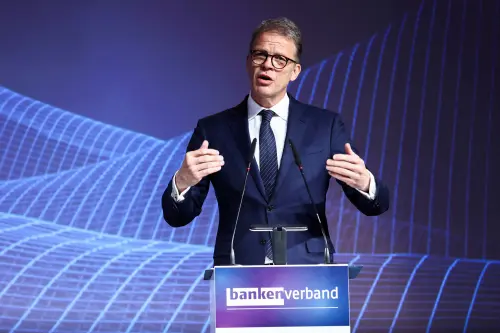Business leaders urged the swift formation of a new government on Monday in Frankfurt and Munich, citing the urgency for action in Europe's largest economy. They highlighted concerns over high costs, bureaucratic hurdles, and increasing international competition affecting companies. The conservative CDU/CSU bloc's victory in Sunday's national election is seen as paving the way for a coalition with the Social Democrats, potentially streamlining decision-making to address corporate needs promptly. However, opposition parties hold significant influence in parliament on crucial matters such as adjusting the constitutionally mandated debt brake, impacting the country's budgetary flexibility. Criticism from top German companies has focused on the government's inaction on energy costs, which are markedly higher than in China and the United States, along with bureaucratic inefficiencies. "We don't need any further discussions, the problems are well known - we need implementation now," stated Roland Busch, CEO of Siemens, emphasizing the pressing need for action to maintain competitiveness. Reflecting on the alarming economic outlook, Leonhard Birnbaum, CEO of E.ON, advocated for a market-driven approach to economic policies, expressing dissent towards state interventions in the energy sector. Amid concerns of a third consecutive year of economic contraction in 2025, corporate leaders like Christian Sewing of Deutsche Bank emphasized the crucial need for a proactive government capable of spearheading significant reforms promptly. A survey by the Chamber of Commerce and Industry revealed that 60% of firms perceive economic conditions, including high costs and bureaucracy, as serious threats, heightening apprehensions of industrial decline. Despite these challenges, optimism prevailed in the stock market with the DAX index showing an increase post-election, buoyed by expectations for decisive actions from the new government, such as proposed corporate tax cuts by the CDU. Christian Bruch, CEO of Siemens Energy, underscored the necessity for swift action to enhance competitiveness, particularly in energy policy, advocating for advancements in gas-fired power plants, wind energy, electricity grid modernization, and raw material security.
World.Alpha-News.org ➤ The news of the world is here
Corporate Leaders Call for Swift Action on Berlin's Weak Economy
